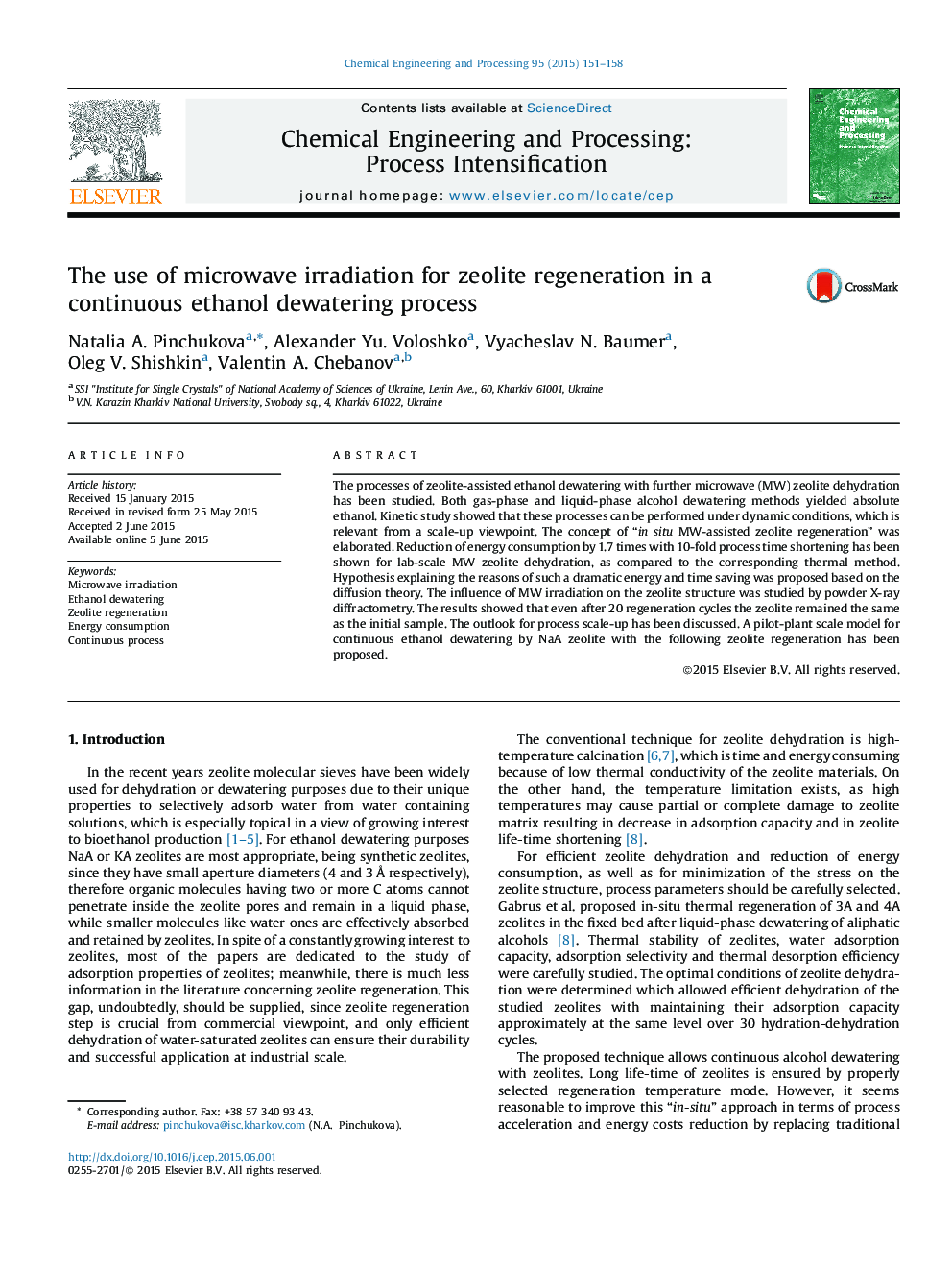| Article ID | Journal | Published Year | Pages | File Type |
|---|---|---|---|---|
| 688025 | Chemical Engineering and Processing: Process Intensification | 2015 | 8 Pages |
•The process of microwave dehydration of NaA zeolite after ethanol dewatering has been studied.•10 times acceleration of MW-assisted zeolite dehydration is observed comparing with the thermal process.•5-fold energy saving is expected in result of the process scale-up.•Thermal and non-thermal microwave effects resulting in process intensification are discussed.•The pilot-plant model for continuous ethanol dewatering is proposed.
The processes of zeolite-assisted ethanol dewatering with further microwave (MW) zeolite dehydration has been studied. Both gas-phase and liquid-phase alcohol dewatering methods yielded absolute ethanol. Kinetic study showed that these processes can be performed under dynamic conditions, which is relevant from a scale-up viewpoint. The concept of “in situ MW-assisted zeolite regeneration” was elaborated. Reduction of energy consumption by 1.7 times with 10-fold process time shortening has been shown for lab-scale MW zeolite dehydration, as compared to the corresponding thermal method. Hypothesis explaining the reasons of such a dramatic energy and time saving was proposed based on the diffusion theory. The influence of MW irradiation on the zeolite structure was studied by powder X-ray diffractometry. The results showed that even after 20 regeneration cycles the zeolite remained the same as the initial sample. The outlook for process scale-up has been discussed. A pilot-plant scale model for continuous ethanol dewatering by NaA zeolite with the following zeolite regeneration has been proposed.
